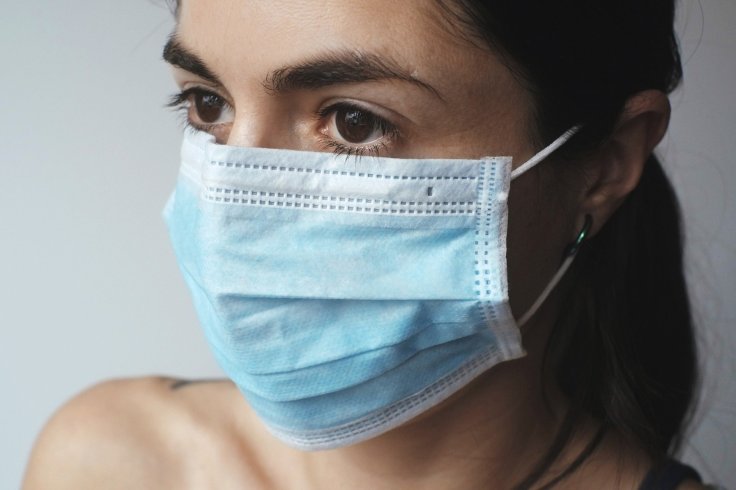Health organizations and healthcare experts have been asking people to wear masks when out in public since the emergence of the Coronavirus pandemic. As many people began asking one question again and again—how frequently masks should be washed or changed—healthcare professionals caution that one must change it frequently to avoid acne and infection.
Dr. Atul Aundhekar, who is the CEO of UAE-based Avivo Health Care Group that runs many health clinics recommended that people should use disposable three-ply face masks which can be changed every two hours. According to the doctor, this will help to prevent many infections. He also said that microbes and germs are present on the internal part of the mask, as well as on the outside surface.

Ever since the Coronavirus pandemic started dominating the world, healthcare experts have been advising people to cover their faces and wear masks. But they have also explained that when we wear masks for a long time, it traps the spit and moisture from the respiration and the microbes from the mouth get trapped between the mask and the skin. The experts also said to be careful while using water-resistant three-ply fabric for a long time as it can increase the chances of exposing us to several other infections.
At this time, when the mask has become an essential tool to protect people from Coronavirus infection, Russia introduced a national mask mandate. In this backdrop, it's important to know more about its use and how people can protect themselves from getting affected by other infections.
The Right Use of Masks
According to Dr. Aundhekar, in terms of the management of infections, one of the effective tools to assess the microbe load is measuring the indoor and outdoor air for Bacterium Like Particles (BLP) and Virus-Like Particles (VLP). "One can similarly measure the colony of bacteria that build-up per square section of fabric. Tests have revealed that in one hour, the build-up is 1x10 raised to the power of five," he added.
As per the doctor, it means that within a few hours one can have a build-up of millions of microbes, which can mutate based on the interaction of the environmental growth factors, leading to infections. As a result, a person who has been wearing the mask for a long time, without changing, "can get respiratory tract infections as well as face rashes", warned Dr. Aundhekar.

Dr. Sarah Agha, GP for Aesthetic Dermatology at Aesthetica Clinic in Dubai Health Care City (DHCC) said that people who do not change their masks frequently can experience acne, skin rashes, and respiratory infections such as runny noses as an impact of this microbial build-up. She said that despite the following oral hygiene measures "the microbes from our mouth with a build-up mix with the humidity from the air clog the sweat pores causing infection." Dr. Agha has advised people to change their mask every two hours after it becomes "damp, soiled and coated with microorganisms".
She did not recommend the use of washable cloth masks. According to Dr. Agha, it is not possible to determine the hygiene levels of a frequently home-washed mask which could put people in a more vulnerable situation to contract airborne infections "from droplets of saliva suspended as an aerosol that could enter through the oral cavity of the mouth and nose as these are not water-resistant".
The World Health Organization (WHO) does not recommend the use of masks with exhalation valves. This kind of masks may make it easier to breathe but also allows any pathogen to funnel through the valve opening.









